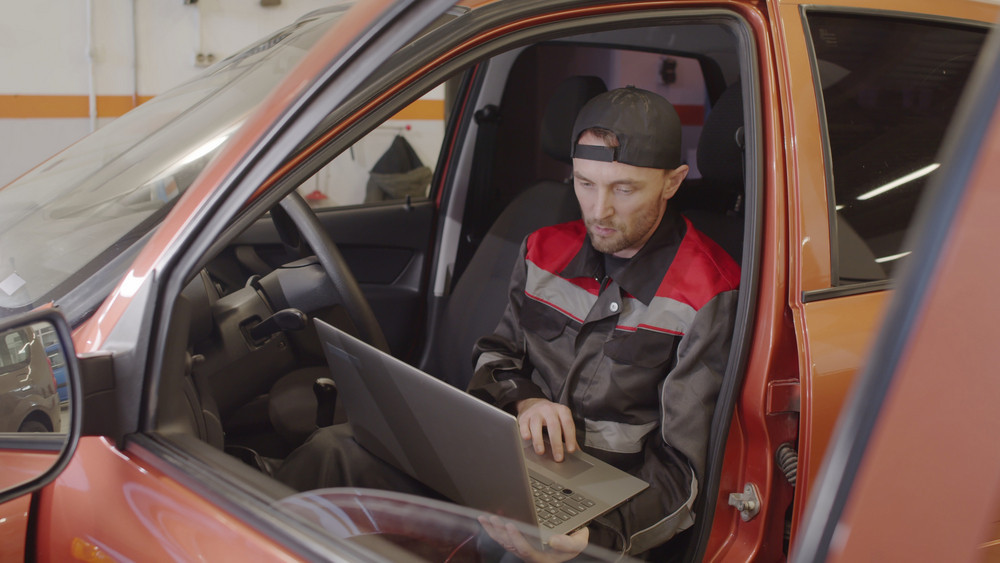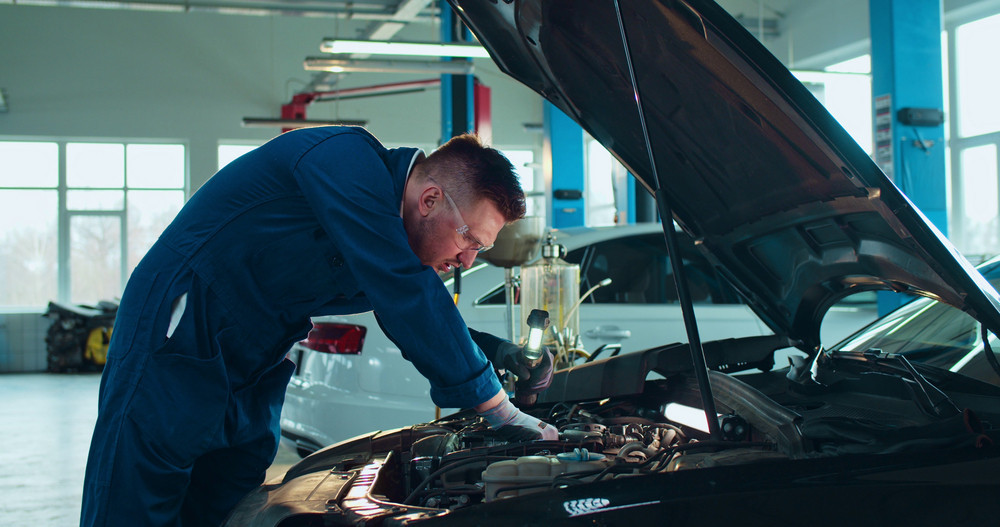Catch These 7 Car Trouble Signs Early With a Full Inspection at a Trusted Shop in Appleton, WI
Appleton, United States - July 24, 2025 / Zentner's Auto Service /
Highlights:
Unusual noises like squealing brakes or engine knocking often signal deeper problems that require immediate professional diagnosis.
Dashboard warning lights, such as the check engine or ABS light, are alerts from your vehicle's internal monitoring system and should never be ignored.
Poor fuel efficiency can be caused by issues with spark plugs, sensors, or injectors—an experienced car repair shop with comprehensive services can pinpoint the cause.
Vibrations or pulling while driving may indicate alignment issues, worn suspension parts, or brake system failures that only a full-service shop can accurately assess.
Fluid leaks (oil, coolant, brake fluid) are signs of failing seals or hoses and need thorough evaluation before they lead to serious engine or transmission damage.
Difficulty starting your vehicle can stem from battery, starter, or fuel system issues—all best diagnosed with full diagnostic tools at a comprehensive repair shop.
Weak or uneven braking is a major safety concern that requires immediate attention from an experienced car repair shop with full brake service capabilities.
Owning a vehicle means keeping a constant eye (and ear) on how it runs. While many drivers wait for a breakdown before visiting a mechanic, the smarter move is to stay ahead of serious issues with comprehensive car inspections. These inspections aren’t just routine checkups. They're detailed evaluations of your vehicle’s core systems, designed to catch problems before they turn into major, expensive repairs.
This article dives into the top 7 signs that signal it’s time to visit a full-service, expert auto shop. Whether you drive an aging sedan or a brand-new SUV, these indicators apply universally—and addressing them early can save you thousands in the long run.
1. Unusual Noises While Driving or Idling
Strange sounds are one of the most obvious signs that something’s wrong under the hood—or elsewhere.
Common problem sounds include:
Squealing when braking: Often a sign that brake pads are worn or calipers are sticking.
Knocking or pinging from the engine: May indicate improper fuel combustion, worn bearings, or timing issues.
Grinding during gear shifts: Could point to a transmission issue or clutch wear.
Humming or roaring at certain speeds: Might be related to tire imbalance, wheel bearings, or driveline components.
These noises can be subtle at first but gradually get worse. Ignoring them can lead to system failure—especially when it comes to brakes, suspension, or engine timing.
What a professional inspection includes:
An experienced car repair shop offering comprehensive services will:
Use diagnostic tools to isolate the source of the sound
Inspect brake pads, rotors, calipers, and brake fluid levels
Examine the engine’s timing chain or belt, mounts, and internal parts
Evaluate wheel hubs, tires, and alignment
Addressing these sounds early can prevent accidents, extend the life of critical parts, and ensure peace of mind on the road.
2. Dashboard Warning Lights Are On
Dashboard lights are your vehicle’s built-in alert system. When they illuminate, something is wrong—and it’s time to stop guessing.
Warning lights you should never ignore:
Check Engine Light: Ranges from minor issues (like a loose gas cap) to serious engine damage.
ABS/Brake Warning: May indicate low brake fluid, worn pads, or anti-lock braking system failure.
Battery/Charging Light: Signals problems with the alternator, battery, or wiring.
Transmission Light: Could point to overheating, slipping gears, or fluid problems.
These lights are connected to a network of sensors that monitor real-time data across your car’s systems. Ignoring them allows hidden issues to fester.
What an experienced shop will do:
At an experienced car repair shop with full-service capabilities, technicians will:
Connect the car to a diagnostic scanner to read trouble codes
Conduct hands-on inspections based on those codes
Reset the warning system after repairs are completed
Recommend follow-up care or part replacements
Unlike general or budget shops, full-service repair shops often have advanced diagnostic equipment and seasoned staff who know how to interpret complex error codes accurately.
3. Decrease in Fuel Efficiency
Are you visiting the pump more often than usual? A noticeable drop in miles per gallon isn’t just about gas prices—it’s often your vehicle’s way of saying something’s wrong.
Common causes of poor fuel economy:
Dirty air filters: Block airflow and increase fuel consumption.
Worn spark plugs: Cause inefficient combustion.
Failing oxygen sensors: Lead to incorrect fuel-air ratios.
Dragging brakes or low tire pressure: Increase rolling resistance.
Misfiring cylinders or poor fuel injectors: Waste fuel and reduce power.
Even subtle reductions in fuel economy can signal early-stage problems that grow over time.
What a full-service inspection involves:
An experienced auto repair shop with comprehensive services will:
Test engine compression and check spark plug condition
Inspect fuel injectors for clogging or leaks
Replace or clean air and fuel filters
Use scan tools to assess O2 sensors and engine timing
Examine tires, alignment, and brake drag
Improving fuel economy doesn't just save money—it also reduces engine stress and emissions.
4. Vibrations or Pulling During Driving
Smooth rides are the result of properly balanced wheels, aligned suspension, and functional steering components. When something goes wrong, you’ll often feel it before you see it.
Symptoms to watch for:
Steering wheel vibration at highway speeds: Often caused by unbalanced tires or bent rims.
Vibration when braking: Indicates warped brake rotors or suspension wear.
Car pulling to one side: Could be uneven tire pressure, brake caliper issues, or alignment problems.
Shuddering during acceleration: May signal CV joint or axle damage.
These issues impact both comfort and safety, especially during wet or high-speed driving.
What comprehensive inspections cover:
An experienced car repair facility will:
Perform tire balancing and wheel alignment checks
Test suspension components like ball joints, tie rods, and struts
Measure brake rotor thickness and pad wear
Check for bent axles or damaged drivetrain parts
This kind of work demands specialized equipment and trained hands—something you’ll only find at a shop offering comprehensive repair services.
5. Fluid Leaks
If you spot puddles or stains under your car, don’t dismiss them. Leaking fluid usually means a worn seal, cracked hose, or failing component.
How to identify different fluid leaks:
Brown or black: Engine oil
Red: Transmission fluid or power steering fluid
Green, orange, or pink: Coolant/antifreeze
Clear or yellow: Brake fluid or water condensation from the A/C system
Fluid loss can quickly lead to overheating, friction damage, or total system failure—especially if it involves coolant, oil, or brake fluid.
What a comprehensive inspection includes:
A reputable full-service auto repair shop will:
Use UV dye and pressure testing to locate leaks
Inspect gaskets, seals, radiator, and hoses
Test coolant levels and check for combustion gases in the radiator
Evaluate transmission and differential for signs of internal leakage
Don’t top off fluids and call it a day. Have the source repaired before it affects other components.
6. Difficulty Starting the Vehicle
If your car hesitates when you turn the key—or worse, doesn’t start at all—you need more than a battery jump. This issue is often electrical or fuel-related, and it requires immediate attention.
Symptoms to recognize:
Clicking sounds: Likely a weak battery or faulty starter.
Slow crank: May be caused by corroded cables or a failing alternator.
Intermittent starts: Could signal fuel pump or ignition switch problems.
Cranks but doesn’t start: Often an issue with fuel delivery or spark.
While you might be tempted to replace the battery and hope for the best, it’s smarter to let a pro investigate the full picture.
What an experienced technician checks:
At an experienced car repair shop offering full diagnostics, a technician will:
Test the battery’s charge and load capacity
Inspect alternator output and starter motor function
Scan the ignition system and fuel delivery components
Evaluate the ECM (engine control module) for software or sensor issues
A proper diagnosis means you replace only what’s necessary—no guesswork, no wasted money.
7. Braking Feels Weak or Uneven
Brakes are your car’s most critical safety system. Any decline in performance should prompt immediate attention—especially if stopping takes longer than usual.
Common brake problems:
Soft brake pedal: Possibly air in the lines or failing master cylinder.
Vibration when braking: Often caused by uneven rotor wear or loose calipers.
Grinding noises: Metal-on-metal contact from worn-out pads.
Burning smell after braking: Overheating brakes or stuck caliper.
Neglecting brake issues can lead to total brake failure or dangerous stopping distances.
What a comprehensive brake check includes:
A trusted, experienced car repair shop with full brake services will:
Measure brake pad and rotor thickness
Inspect calipers, hoses, and brake lines for damage or leaks
Flush and replace old brake fluid if necessary
Test ABS system function and wheel speed sensors
A shop that offers complete car repair services will also check wheel bearings and suspension components during a brake service to ensure all related systems are functioning properly.
Bonus: When You Should Get a Comprehensive Inspection Even Without Warning Signs
Even if your car seems fine, certain situations call for a full diagnostic check:
Schedule an inspection when:
You're buying a used vehicle: A pre-purchase inspection can save you from buying a lemon.
You’re preparing for a long road trip: Avoid mid-trip breakdowns.
Your vehicle passes 100,000 miles: High-mileage vehicles are prone to hidden issues.
It’s been over a year since your last inspection: Regular inspections are part of responsible car ownership.
The Bottom Line: Prioritize Prevention with the Right Repair Shop
These 7 signs are your car’s way of asking for help. Whether it’s unusual sounds, warning lights, fuel efficiency issues, or brake problems, addressing the root cause early prevents bigger—and more expensive—failures later on.
When it comes to your vehicle’s health and your own safety, don’t take shortcuts. Schedule a comprehensive inspection at a full-service auto shop with years of experience, and drive with confidence knowing every system is performing at its best.

Contact Information:
Zentner's Auto Service
4510 W Greenville Dr
Appleton, WI 54913
United States
Zentner's Auto
https://www.zentnersauto.com/



